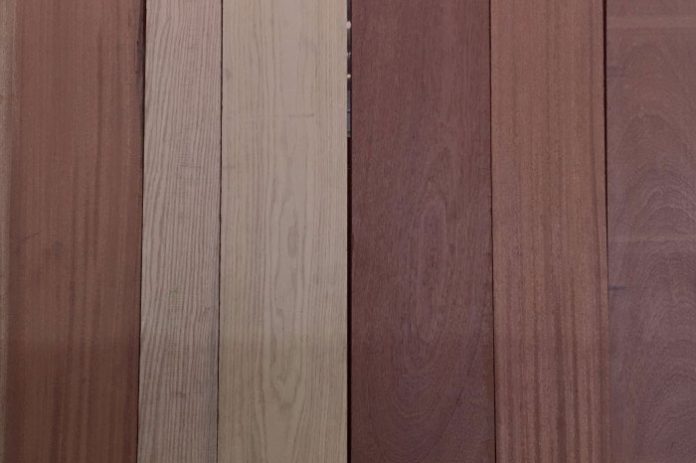Do you know that one of the most expensive woods in the world, “Thai Rosewood,” can reach up to $50,000 per cubic meter (for almost the size of a two-seater sofa) and sometimes even more? It is because of its growing demand, unique aesthetic appeal, and quality features like resistance to decay and insects.
Well, that’s not it. Apart from Rosewood, many other types of wood are famous and expensive because of their rarest qualities, usage in specific industries, intricate grain patterns, and prestige. There are many reasons why the cost of wood drives up, like its availability, workability, hardness, usage, resistance, and durability.
Key Takeaways
- African Blackwood and Rosewood won the top position.
- Brazilian Rosewood is used in making luxurious boutique guitars.
- Brightest Pink Ivory is the most expensive one among its variations.
List of 12 Most Expensive Types of Woods in the World
Below are the costliest woods in the world in 2025 with their notable qualities and prices.
1. African Blackwood | Hardest and Densest Wood in the World
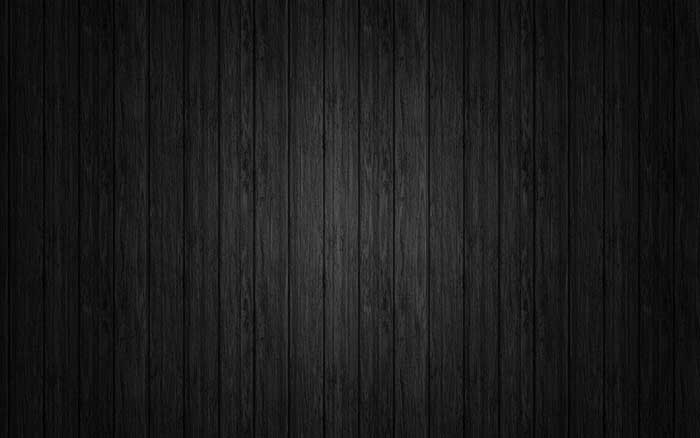
What makes African Blackwood (Dalbergia Melanoxylon) so expensive is its super qualities like stiffness and durability. Plus, it is hard to handle even with tools. Due to illegal trafficking, it is becoming rare over time, surging its demand and prices so drastically. According to IUCN, it is near threatened species due to over-harvesting, and they can go extinct if not conserved soon. African Blackwood is considered to be one of the hardest and densest woods in World, almost 285 species tested indeed!
| Origin | Widely found in Africa, Tanzania, Kenya, and Mozambique |
| Price Range | Upto $100 per board foot |
| Key Features | Even textured and highly durable. Blackish, dark brown, and sometimes even purplish color. Give a luxurious smooth finish and is very resistant to termites. |
| Widely Used In | Making musical instruments like flutes due to their acoustic properties, luxurious furniture, knife handles, flooring, decoratives, and boats. |
2. Pink Ivory | Rarest Wood in the World
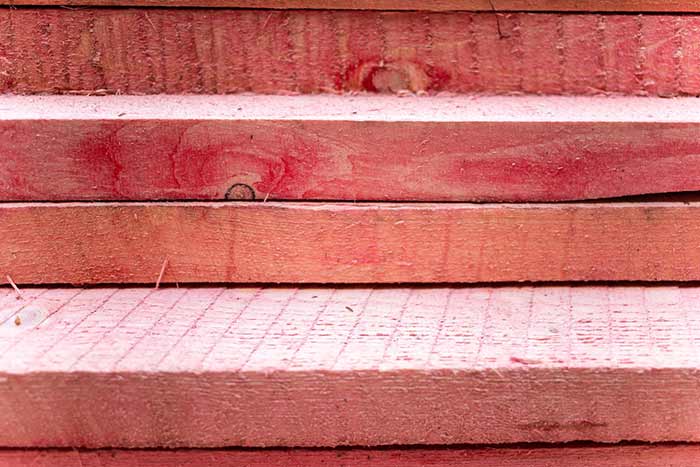
Also known as Red Ivory. It is considered to be rarer than diamonds due to its value and availability. Especially bright pink pieces are difficult to source, and there are strict regulations on its harvesting. The wood is highly densed at around 990 g/dm3, with a Janka hardness rating of 3,280 lbf, which makes it one of the hardest woods in the world and ideal for creating durable and high-quality items.
It has low shrinkage, which ensures excellent stability and resistance for warping or cracking, even in the fluctuating temperatures. The ivory wood tree is very native to southern Africa, and grows slowly, and it takes almost 200 years to mature to become usable size of about 100 to 130 ft (30 to 40 m) tall, with 3 to 5 ft (1 to 1.5 m) trunk diameter. Its bright ivory pink color and scarcity make it highly coveted in the luxury wood market, and its cultural significance in Zulu traditions adds even more worth to it.
All of these factors accumulate to its crazy high price. While Pink Ivory is rarely used for refinishing large furniture pieces like dining tables, its exotic appeal and luxurious properties make it an inspiring choice for small refinishing projects like luxurious or decorative items jewelry boxes, knife or pen handles, turned items (sculptures, bowls etc), and accent inlays, where only a small amount of wood is needed. Pink Ivory’s rarity and cost make it more suited for these intricate, high-end creations than for large furniture refinishing projects.
| Origin | Native to South Africa, Zimbabwe, Mozambique |
| Price Range | $80 per board foot (can vary dispensing upon its color) |
| Key Features | Notable watermelon peach color that can vary from pale brown to deep red. Fine-grained and natural luster can be seen. Exceptionally hard and stiff, they have decay-resistant qualities and a smooth look. |
| Widely Used In | Chessmen, jewelry, pool cues, knife handles, carving, pens, decor items. |
3. Brazilian Rosewood | Beautiful Wood in the World
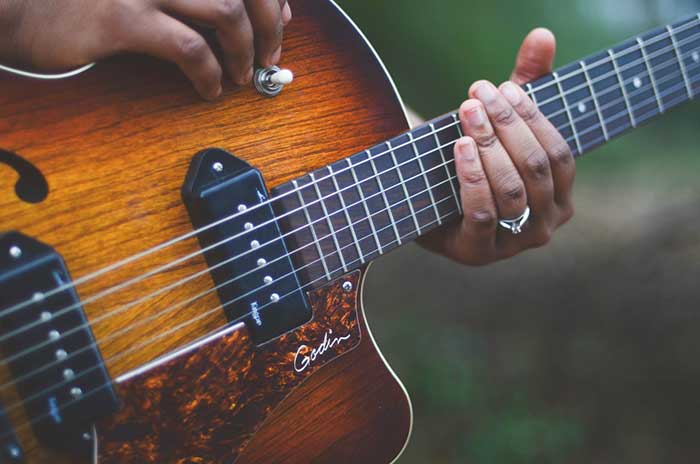
Brazlian rosewood is also known as Bahia rosewood, jacarandá-da-Bahia, Rio rosewood, jacarandá-do-brasil, pianowood, caviúna, graúna, jacarandá-una or obuina. However, the scientific name of this wood is Dalbergia Nigra. This is considered to be the best ones for constructing furniture and top musical instruments like boutique guitars. Its scarcity has surged due to illegal exploitation over the past three centuries, and it has now come under IUCN Red List as “vulnerable.”
| Origin | Brazil’s Atlantic Rainforest |
| Price Range | $70 per board foot |
| Key Features | Reddish deep brown to dark shades with red, gold, and oxblood-colored grain hints. Notable rose scent, acoustic properties, pest resistance, and highly durable. It has natural oils and gives a sleek finish. |
| Widely Used In | Musical instruments, flooring, wood decoratives. |
4. Macassar Ebony | Finest Woods in the World
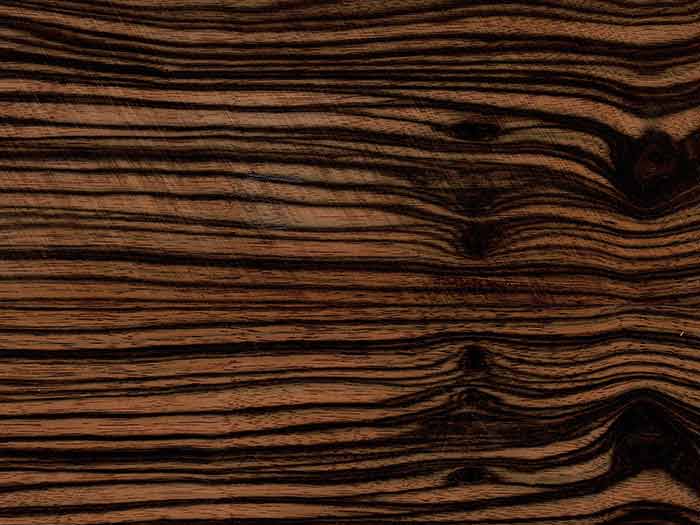
It is named after the Indonesian port city, Macassar. Its demands remain high all year around because Ebony trees take longer to grow fully and have exceptional hardwood qualities. Plus, they are endangered because of illegal logging. These factors make it among the top most expensive wood type in the world.
| Origin | Southeast Asia |
| Price Range | $65 per board foot |
| Key Features | Straight and interlaced fibers of red-brown and yellowish hues. The striped appearance has a naturally smooth finish. Slightly unpleasant odor and is difficult to work with. |
| Widely Used In | Delicate specialty items, exclusive musical instruments, billiard cues, fingerboards, and luxurious cabinetry. |
5. Acacia Koa | Unique Curly Appearance
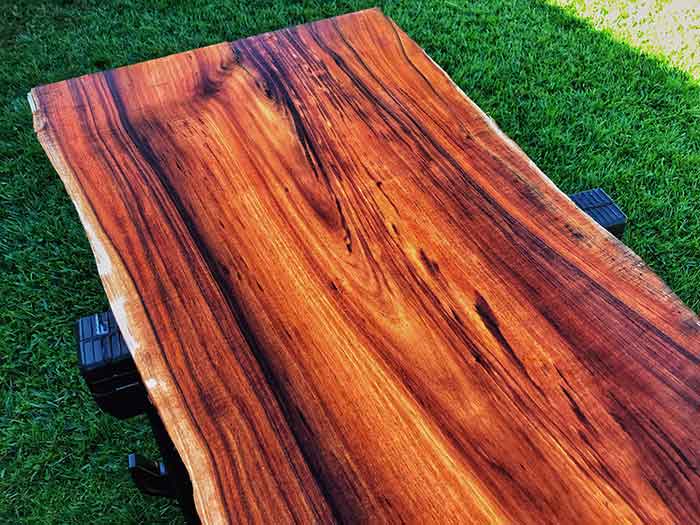
This Hawaiian Koa wood can be easily sanded and bent to construct anything. The strength and stiffness make it perfect to work with. Liked by many woodworkers and designers, it is a high-value item that is harvested in a controlled and restricted environment. It takes 50-70 years to mature. However, it is not so durable and can be easily degraded. Since it is grown in volcanic areas, the red and dark gold colors give it a unique appearance that can not be found in any other wood.
| Origin | 2nd Largest native tree species of Hawaii |
| Price Range | $62 Per board foot |
| Key Features | Unique natural sheen and finish. Plus, ribbon-like streaks of reddish brown and golden shades. Strong and shock-resistant qualities make it unique. |
| Widely Used In | Jewellery boxes, musical instruments (as it is a tonewood), furniture, and veneers. |
6. Ziricote (Ziracote) | Extremely Dense and Among the Finest Woods

Ziricote which is also known as Mexican Rosewood, can be an easy one to handle due to its high density. Its texture makes it unmatched. Having brittle and humidity-sensitive properties, it can require some level of expertise to work with. Although it does not affect the sound of the guitar that much, it is the most preferred wood type to make guitars – majorly due to its unique hue overlays that are natural.
| Origin | Native to Southern Mexico and Central America |
| Price Range | $60 Per board foot |
| Key Features | Unique spider-web appearance with colors ranging from dark black bands intermixed with slight green and purple shades. |
| Widely Used In | Several wood items, including furniture, guitars, and gunstocks. |
7. Cocobolo | Beautiful and Exotic Rosewood
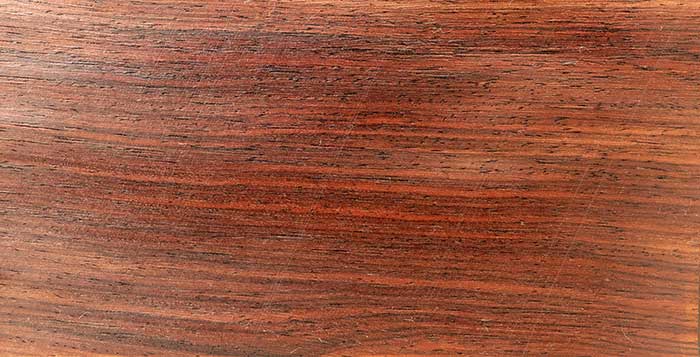
Due to its characteristic hues and strength, it is widely loved by artisans and wood crafters and is used to make several valuable collectibles like Cocobolo desks, wood pens, guitars and cocobolo chess board. You may have seen cocobolo desk as a prominent one in the super-hit series Breaking Bad. The character named Jimmy McGill said, “Hey do you think? Do we get a choice of desks? Is it possible….can we do cocobolo?” as he wanted to get one, a sign of success and victory.
It gets darker as it ages, adding to the grace and beauty of its appearance. Even after several governmental laws and restrictions on its harvesting in a sustainable manner, it has been declared as “Vulnerable” by IUCN. And now, authorities must step in to make the laws even more strict.
| Origin | Especially in Central America and spread over Latin countries like Panama, Costa Rica, Mexico, El Salvador, Guatemala |
| Price Range | $55 per board foot |
| Key Features | Unique black and brown colors with spots of red, yellow, purple, and oranges. Has a neutral luster with a super smooth and even texture. Highly resistant, durable, and stiff. |
| Widely Used In | Furniture, indoor flooring, paneling, pool cues, sculptures, handles, and jewelry boxes. |
8. Agarwood | Wood of Gods and the Precious Lumber
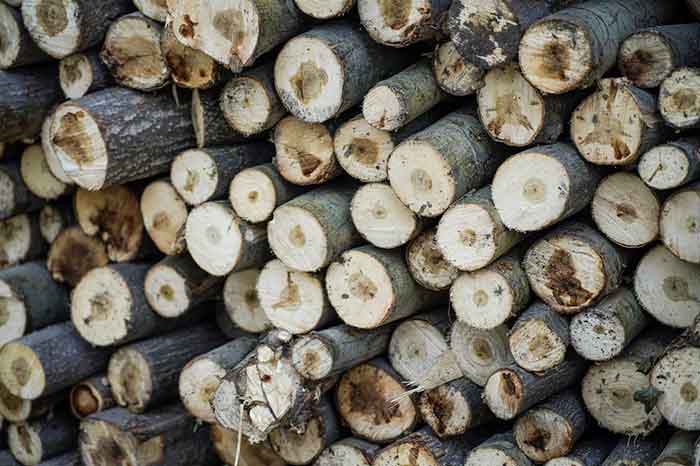
It is also known as “Oud.” And it is the key factor in its identification. Although its aroma is not much significant in its natural form, it can be strongly felt once you burn it. It seamlessly spreads all over the space and produces less smoke than other woods. Plus, a seriously earthy look it has. Due to its fame and demand all over the world, it is considered endangered – and its essential oil is called “liquid gold.” The intensive labor involved in harvesting it and the high demand, makes it one of the expensive woods in the world.
| Origin | Native to Southeast Asia. Its forests are widely found in Indonesia, Cambodia, Laos, Vietnam, Malaysia, Northeast India, and Thailand. |
| Price Range | $25 Per board foot |
| Key Features | Fragrant notes and dark shades ranging from light yellowish to dark brown with a distinctive appearance. Weavy grain pattern with fine texture, making it easy to work with. Long-lasting, durable, and resistant to decay, fungal attacks, and insects. |
| Widely Used In | Several medicinal purposes, important in various religious ceremonies. Widely known for its wood and essential oil to make luxury perfumes. |
9. Sandalwood | Famous for Strong Scent
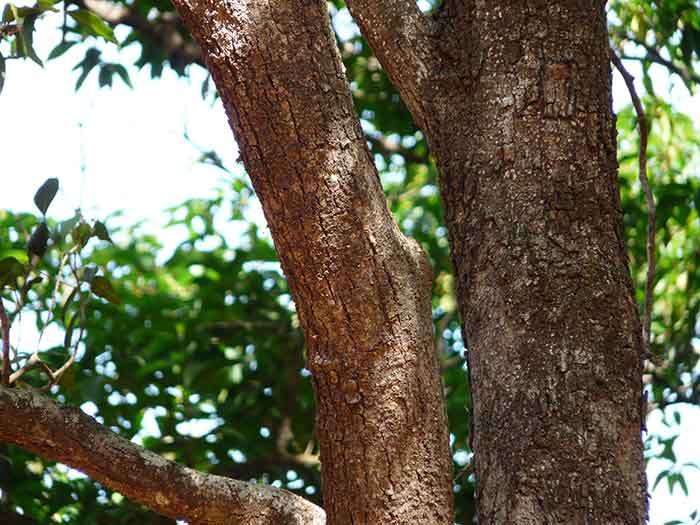
Much known for its fragrant properties, it is going extinct due to illegal extraction and selling in the black market. It is mainly demanded by perfume industries, skincare brands, and traditional medicine, making it one of the most expensive wood. It is also used to make high-end, expensive, and intricate furniture items, sculptures, and figurines.
| Origin | Western ghats of India |
| Price Range | $10 Per board foot |
| Key Features | Fine and smooth textures with interlocked weary grain patterns, resistant to wear and dents, highly durable texture. Distinctive reddish-brown appearance. |
| Widely Used In | Sports goods, turnery, furniture, and luxury/expensive items. |
10. Purpleheart | Most Vibrant Type of Wood
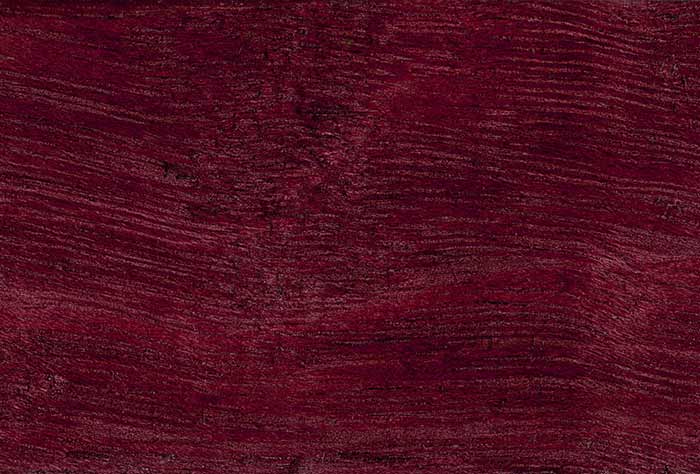
Purple heart wood is known for its vibrant purple shades that cannot be found in any other species. It can pose some difficulty in cutting and manufacturing. It will need to be pre-drilled for screwing and often requires special tools to be handled properly. Restrictions on the logging and export and high transportation costs make it an expensive wood.
It is widely used in heavy construction projects like building flooring for cargo trucks, feature walls, and boardwalks in areas that are more exposed to humidity and pressure.
| Origin | Native to Brazil and Mexico |
| Price Range | $8 per board foot |
| Key Features | Unique purple-brown and grey color and gain pattern make it special. Decay and insect resistant. The grain pattern is typically straight. |
| Widely Used In | High-end flooring, furniture, boat building, decking, and musical instruments (guitar fretboards). |
11. Bubinga Wood | Lustrous African Hardwood
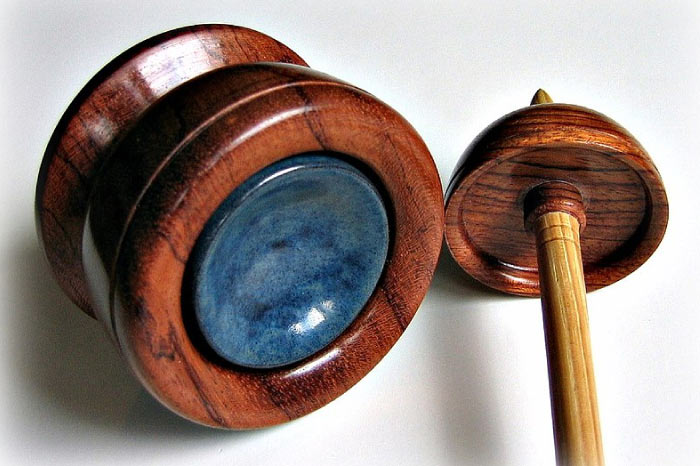
Bubinga is a strong and lustrous African Hardwood, an excellent replacement for expensive woods while making luxurious furniture. It has a fine to medium texture and a peculiar, unpleasant scent when wet. But the wood in dry form is free from any strange odour.
| Origin | It is commonly found on the West Coast of Africa or around equatorial Africa. |
| Price Range | $24.99 Per board foot |
| Key Features | It is resistant to moisture, fungi, dry wood borers, and termites. Hence, it is long-lasting and the best option for many projects. |
| Widely Used In | The Bubinga Wood is one of the most famous African imports. It is widely used in manufacturing luxurious furniture, cabinetry, gunstocks, and wood carving projects. |
12. Bocote Wood | Exotic Hardwood
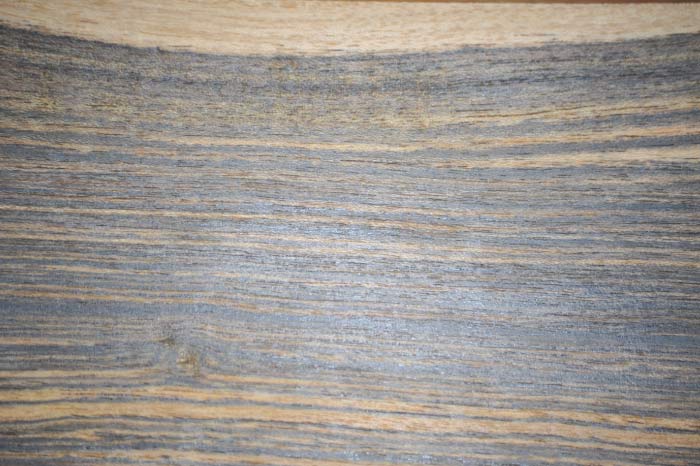
Bocote wood lies in the less expensive woods category, close to other mid-to-high priced exotic hardwoods. It is an excellent alternative to many of the Rosewood species. It has unique grain patterns, from straight lines to swirls to bird’s eye designs.
| Origin | The beautiful decorative exotic wood, known as the Bocote wood, grows from Mexico through lower Central America. |
| Price Range | $39.99 Per board foot |
| Key Features | It has a medium uniform texture and a good natural luster. It has a relatively high natural oil content, but gluing is usually problem-free. |
| Widely Used In | It is used to make furniture, cabinetry, flooring, musical instruments, gunstocks, and other small wood items. |
In a Nutshell:
Each of the most expensive woods in the world is the rarest and possesses some unique characteristics. Whether you are an interior design enthusiast, a woodworking specialist, or just a curious person who wants to be amazed by how much just the wood can cost these exclusive and rarest wood types will surely impress you.
Images: Wikimedia Commons


